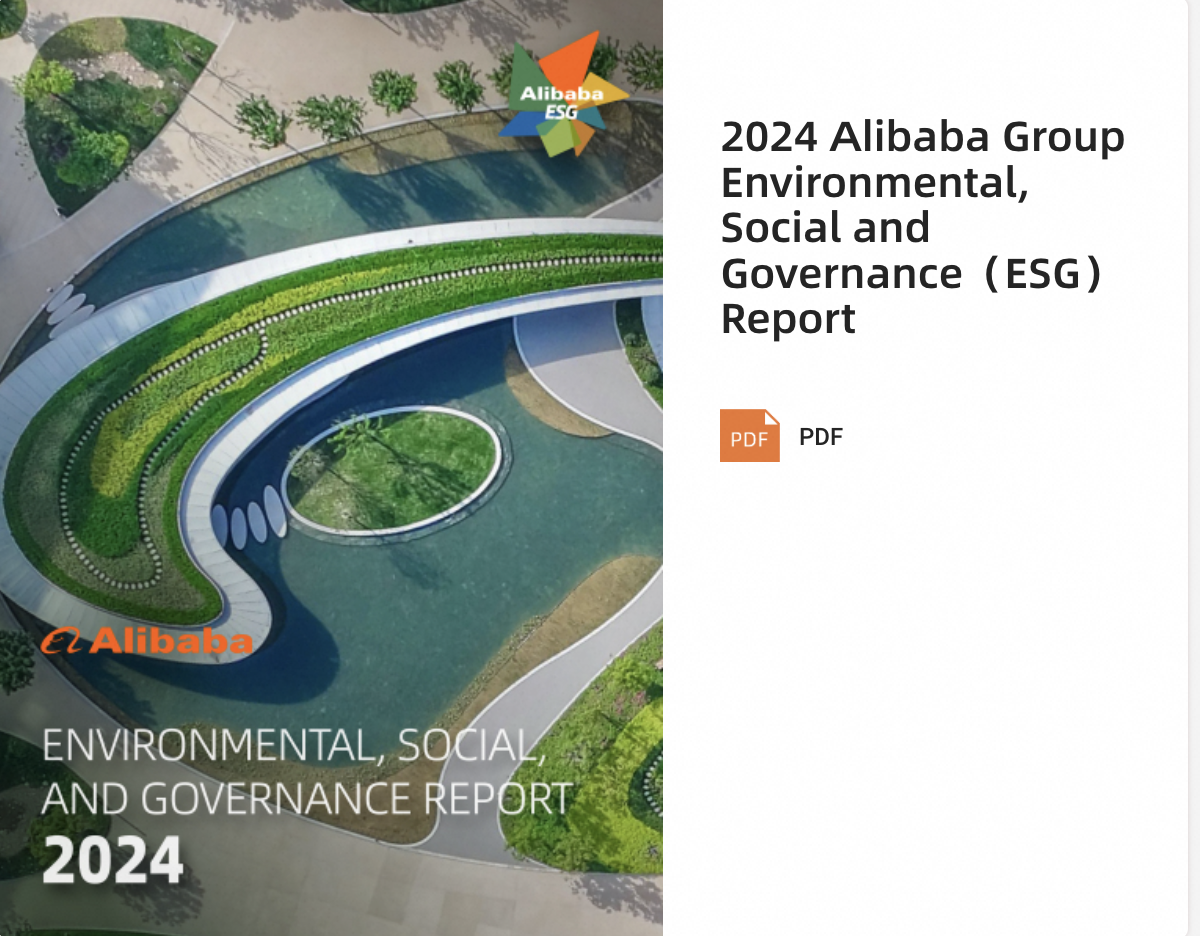Free


Contact person: Claudine Ang Contact email: claudine.ang@alibaba-inc.com
Monday, August 5, 2024, 10:00 - October 31, 2024, 17:30 UTC+08:00
NA NA, Singapore, Central, Singapore
Alibaba Cloud is committed to creating a sustainable future through innovation. Our solution, with its comprehensive energy and emission management features, helps achieve high energy efficiency and carbon neutrality goals.
These are based on leading technical capabilities in artificial intelligence (AI), data intelligence, and the Internet of Things (IoT), combined with proven expertise across energy sectors and industries.
This helps you plan a detailed sustainability strategy, monitor and manage energy consumption and environmental impacts, and integrate the strategy into communities.
Register NOW to get in touch with us.
Download the 2024 ESG Report here: https://www.alibabagroup.com/en-US/esg
Alibaba Group reduced greenhouse gas (GHG) emissions from its own operations by 5.0% during the year ended March 31, 2024, according to the company’s latest Environmental, Social, and Governance (ESG) report, which was published on Monday.
The platform company cut its annual operational emissions by 2.32 million tons, a 63.5% increase from the previous year, as its businesses invested in clean energy and fostered low-carbon practices.
At the same time, Alibaba took steps to increase the accessibility of goods and services for merchants and consumers with disabilities and also worked to bridge the resource gap for micro, small, and medium enterprises (MSMEs) globally.
“The core of our ESG efforts is focused on how to be a better company. Over the past 25 years, our ESG-related activities have shaped the essence of Alibaba and are as equally important to Alibaba as creating business value,” said Alibaba Group CEO Eddie Wu.
During its 2024 fiscal year, Alibaba edged closer to reaching carbon neutrality by 2030, with clean electricity accounting for 39% of total electricity consumption, an 11.8 percentage-point increase from the previous year.
The warehouses of Alibaba’s logistics arm Cainiao reused 47.6 million cardboard and saved some 101,000 tons of packaging, while China e-commerce platforms Taobao and Tmall helped consumers save over 10 million tons of emissions by making greener choices.
Food delivery app Ele.me enabled consumers to say no to disposable cutlery on more than 1.8 billion orders, and navigation service Amap helped 51 million users find low-carbon mobility options like walking, cycling and taking buses.
The company also leveraged its platform power to drive positive change beyond its direct operations.
Across its wider value chain, net emissions intensity fell 7% year-on-year to 8.1 tons per million RMB of revenue, while its platform ecosystem achieved a 45.5% year-on-year increase in Scope 3+ emissions reduction.
A Greener Cloud
Alibaba made strides in reducing emissions from its cloud computing data centers during the 2024 fiscal year, reinforcing its commitment to sustainability.
Over the year ended March 31, 2024, Alibaba Cloud's self-built data centers' average power usage effectiveness (PUE) improved to 1.200 from 1.215 the year before, while clean electricity constituted 56% of the total electricity consumed by these centers.
“Over the past year, the development of generative AI has introduced tremendous potential for AI computing capabilities and increased demand for clean computing,” Wu noted in the foreword of the report.
To ensure a stable supply of clean energy, Alibaba is pioneering innovative projects.
In Hebei Province, it developed a 500 MW “source-grid-load-storage” project, and in Jiangsu Province, a 20-year power purchase agreement was implemented to secure a long-term renewable energy supply.
During the last fiscal year, Alibaba’s green computing infrastructure services enabled customers to cut their emissions by 9.884 million tons, up 44% year-on-year.
Building a Barrier-free World
Alibaba aimed a number of social challenges during the last fiscal year, from encouraging inclusive employment to finding a low-cost screening solution to one of the most severe forms of cancer.
Taobao and Tmall’s Optical Character Recognition function enabled over 260,000 visually-impaired individuals to shop by listening during the year ended March 31, 2024.
Over that same period, a barrier-free theatre initiative from video platform Youku offered over 2,000 movies and TV episodes with adjustments to accommodate viewers with visual impairments.
Navigation app Amap expanded its wheelchair navigation feature to 50 cities, generating over 54 million wheelchair-accessible routes. For elderly users, the app also set up more than 5,600 taxi assistance stations and distributed over RMB80 million in medical transportation allowances.
Elderly consumers were also the focus of Alibaba Health’s “Scan for Assurance” tool on Taobao, which improves drug safety by providing easy-to-read, audible instructions for nearly 34,000 medications.
Alibaba supports both consumers and merchants with disabilities.
The company’s Barrier-free Entrepreneurship and Employment Assistance Plan helped more than 4,000 disabled merchants succeed during the 2024 fiscal year, while over 5,500 delivery riders with hearing or speech impairments were active on Ele.me.
“Philanthropic actions are never too small. As long as they target real problems, they are vital. Now, new technologies represented by AI are expanding the possibilities of philanthropy,” said Alibaba’s Wu.
For instance, the company’s research arm, DAMO Academy, developed an AI-driven early screening tool to diagnose pancreatic cancer efficiently and affordably and deployed it at local hospitals in China during the 2024 fiscal year.
Bridging Resource Gaps for MSMEs
Alibaba has leveraged its technological advancements to bridge the gap between innovative solutions and business needs, empowering MSMEs globally.
In the 2024 fiscal year, 85% of Alibaba’s Taobao and Tmall platforms' annual active merchants came from the MSME sector.
In China, wholesale marketplace 1688.com has enabled over 320,000 factories to connect with market demands, while internationally, Alibaba.com has empowered over 230,000 merchants to sell to more than 48 million consumers across 190 countries and regions.
During the latest fiscal year, Alibaba launched the Alimama Wanxiang Lab to offer AI-powered marketing and promotion tools that can be especially useful to smaller businesses.
DingTalk, Alibaba’s enterprise communication platform, also integrated large language models to enhance its services and benefit over 2.2 million companies by the end of March 2024.
Over 360,000 merchants have used Taobao and Tmall’s AI productivity tools for marketing and promotions. The adoption rate for AI-generated videos increased by seven percentage points, while the daily average download rate of AI-generated images reached 45%.
To make AI technologies more widely available, Alibaba Cloud also open-sourced multiple parameters of its large language model Qwen, which recently surpassed 20 million downloads on platforms including Hugging Face, Github and Alibaba’s own open-source AI community ModelScope.

